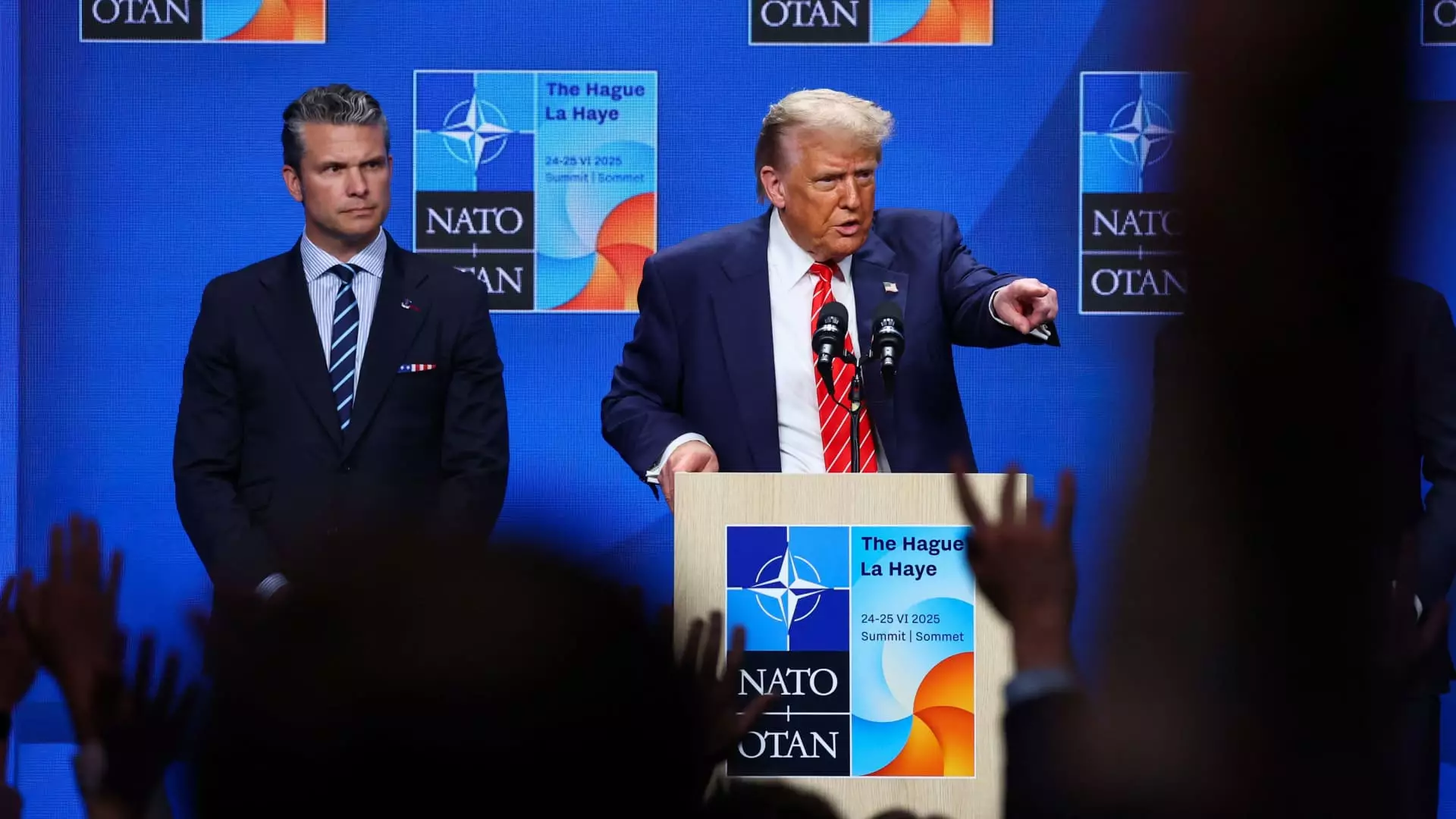In the tempestuous sea of political chatter surrounding international military interventions, often it becomes a game of perception rather than reality. President Donald Trump’s recent assertions regarding the obliteration of Iran’s nuclear program exemplify this sensationalism. Despite his vehement proclamations that U.S. airstrikes fully annihilated Iran’s capabilities at key nuclear sites, emerging intelligence reports provide a starkly differing perspective. This contradiction not only exposes a disconcerting gap between rhetoric and reality but also raises pressing questions about the reliability of our leadership amidst foreign policy crises.
While Trump reiterated that Iran’s Fordo site had been “totally obliterated,” preliminary U.S. intelligence assessments insist otherwise. Instead of a complete eradication of Iran’s nuclear ambitions, these reports claim that U.S. actions only postponed their progress by mere months. To any discerning observer, this inflates the narrative of an all-powerful U.S. military removing threats with ease—a narrative that seems designed to reassure a domestic audience rather than reflect a sobering reality. By crafting this hyperbolic language, Trump disregards the intelligence findings that challenge his assertions, demonstrating how the fusion of bombastic claims and national security can warp the truth.
The Risk of Elevating Rhetoric Over Reality
Trump’s dismissal of the Defense Intelligence Agency’s reports as incomplete and his insistence that the findings stem from insufficient data could be seen as careless or politically motivated. Perhaps what is more alarming is the subsequent reaction from his administration, which has sought to discredit the sources of these assessments while touting a narrative that casts them as “fake news.” The implications here are deeply troubling; it’s not just about the accuracy of intelligence but about fostering an environment where dissenting views are swiftly muted. When officials label critics as “anonymous, low-level losers,” it reflects a disregard for constructive discourse and an alarming inclination toward authoritarianism.
In an unprecedented move, the Pentagon has initiated a “leak investigation” to root out those who dared challenge the official line on Iran. This approach reflects an instinct to silence dissent rather than engage with it—an unsettling trend reminiscent of more repressive regimes. By prioritizing the narrative over accuracy, the administration not only risks eroding public trust but also undermines the principles of transparency that underpin democratic governance. If those in power continue to blur the lines between justified military response and mere bravado, the consequences for United States foreign policy could be dire.
The Allure of Affirmation over Evidence
In defending the airstrikes, Defense Secretary Pete Hegseth engaged in a peculiar form of rhetoric. By demanding that one should “get a big shovel and go really deep” to assess the damage at Fordo, he trivializes the complexities of geopolitical dynamics and fails to acknowledge that sometimes, claims need to be substantiated by verifiable evidence rather than emotional appeals. The obsession with promoting the narrative of victory might win short-term applause, but it neglects the long-term consequences of flawed strategies that can endanger both U.S. lives and global stability.
Additionally, the involvement of Israel’s Atomic Energy Commission further complicates the narrative. Their endorsement of the U.S. strikes as successful might reflect a shared interest, but such alliances should never be a substitute for objective analysis. Blindly accepting one side’s claims fosters a dangerous complicity that carries a heavy price down the line. It boils down to a critical point: the intertwining of military action and diplomatic rhetoric necessitates rigorous scrutiny, lest we find ourselves trapped in a cycle of propping up misleading triumphs.
The Dangers of Political Warfare
Most critically, the current milieu of political warfare tends to overshadow crucial decision-making processes. The quick transition from military strikes to discrediting adversaries emphasizes a disturbing trend—the prioritization of party loyalty over effective governance. When tactical decisions are made within the drumbeat of electoral ambitions, the stakes for world security rise. Military interventions should be rooted in empirical assessments rather than fabrications of success designed to pacify an anxious voter base.
With Congress now being drawn into this swirling narrative, delays in classified briefings suggest a lack of transparent communication with the legislative body that oversees military actions, compounding the disarray. As the Senate reschedules important discussions on matters of national consequence, one must wonder whether this is a failure of leadership or a deliberate scheme to reshape the narrative.
In an age characterized by misinformation and political posturing, it is vital to reclaim the narrative with facts and honesty. The interplay of military strategy and robust diplomacy must not be allowed to dissolve into mere theater governed by self-interest. The stakes are too high for the nation and the world; clarity and integrity must prevail over hollow declarations.

Leave a Reply